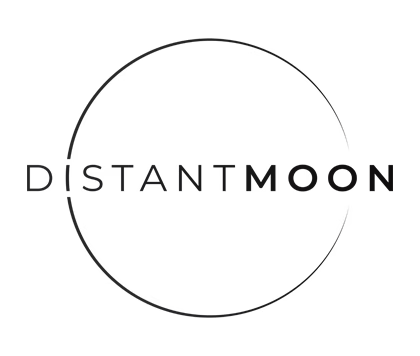A few weeks ago, I wrote about the unexpected gift of closed doors – how sometimes when an opportunity disappears, life (providence) might actually be pointing you to something better for that time of your life. I still believe that. But I there’s another component of finding new opportunities that I want to talk about this week: projecting your vision and dreams out into the world.
Look, I don’t subscribe to “manifest it and it’ll happen.” The universe isn’t some magical wish-granting genie waiting to realign to the vibrations you’re putting out there (Sorry Napoleon Hill). But, I am convinced that what you believe, think about and talk about help to realign reality.
Hold up. Didn’t you just straight-up contradict yourself?
Here’s what I mean: Your brain is a pattern-seeking machine. In fact the human brain is one of the best pattern finders in existence. (Actually crazy interesting: check out this article. Or this one.) Turns out we’re actually still better than AI at pattern recognition. Go team Human!
If consistently fed with vision and clarity, that squishy miraculous brain of yours will find connections, patterns, and pathways that lead to actions that open doors or recognize the paths to open doors. Even better: other people’s brains do that too. The more you talk about your dreams and goals, the more vision-aligned people show up. (I believe a decent dose of Divine orchestration is also involved, but that’s a good conversation for over coffee.)
In essence, in the same way that we train AI on datasets that help it recognize patterns, the more you train your brain on datasets that feature objectives, dreams, values, and education from a wide array of disciplines, the more effective your brain is at pattern finding when presented with real-life opportunities and challenges.
This “training your brain” is why we at Distant Moon practice three things every week:
1. Positive Focus – What’s going well? Dwell on that and reorient your emotional perspective.
2. Dream/Vision Repetition – Where are we going? Why does that excite us and get us up in the morning? Even more importantly, how does that change the world?
3. Values Discussion – What are the values we live by? Why are they important and how do they remind us of the ultimate purpose of what we do – serving others through our efforts.
So, that’s part of the equation, but what happens when the doors open too fast? What happens when the dream starts to bury you? When all the blessings you once begged for come crashing in at the same time?
“Well that’s a weird question!”
Is there such a thing as too much opportunity? Here’s why I ask:
- In the last month, I’ve our team has been on the road across five states.
- In just three weeks, we’ve had four shoots across four cities.
- Our team just wrapped a full motion graphics/animation pass on a feature film for our amazing friends at Freethink (more info coming soon!).
- We launched a new online course with Hillsdale, are worked on an upcoming series with University of Dallas, and juggled 15–20 projects in various stages of production.
- We also welcomed three new hires (two editors and a sales manager) in the same stretch.
We’re not a 100-person shop. We’re 20. And this is a lot. I personally started to feel pretty wiped. So I did a gut check: I asked the team how they’re feeling, expecting a wave of stress.
And I braced myself.
But our senior editor, Nathan, spoke up said, “Everything is pretty chill.” (For those not in the know, that’s Millennial for “The work isn’t too overwhelming and things are manageable.”)
Hold up. What?
Who Not How and Unique Ability.
Here’s why I think the team isn’t losing their minds: we’ve embraced a simple idea from Dan Sullivan’s book, Who Not How. It’s this:
Stop asking, “How do I do this?”
Start asking, “Who can help me do this?”
Before this mindset shift, various members of our team were trying to do everything. I myself thought excellence meant being the person who carried the entire project. Write it. Shoot it. Cut it. Lose sleep over it. That’s what good artists do, right?
But good artists also burn out. And Distant Moon is in it for the long-haul (have I mentioned that we’re working to build the most impactful film studio of the 21st century? Manifes…er. Dataset building. ✅)
So we changed.
We don’t do it perfectly, but our team is built to operate around unique abilities. Unique ability is “your own set of natural talents and the passion that fuels you to contribute in the ways that most motivate you.” We organize not around who’s available or who’s done it before, but around what people excel at and what gives them energy rather than zapping them of energy.
Where are they most skilled? Most energized? Most needed?
And guess what? When people do what they excel at, everything improves. Output. Energy. Morale. Fulfillment. We step out of survival mode and into sustainability – without lowering the bar on excellence. In fact the quality increases.
This is the 80/20 principle in action. When you’re operating in your zone, you can create 80% of the value with only 20% of the drag.
But that’s the Distant Moon team. Guess who still struggles with balance! (If you guessed me. You got it. It’s definitely me.)
But this newsletter is already getting CRAZY long. And we’re not writing a book here (although, HarperCollins, hit me up if you’re interested).
So consider this the cliffhanger for Part 2: “When Opportunity breaks you (almost),” in which I discuss why the myths of the “grass is always greener” and the pervasive “comfort crisis” all around us.
Until then, here’s to human flourishing!
-Ian
